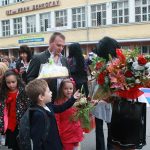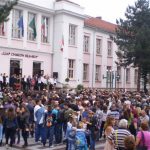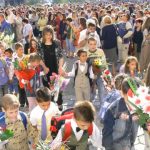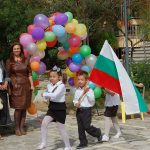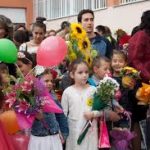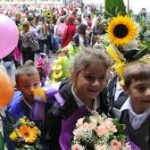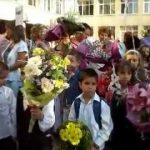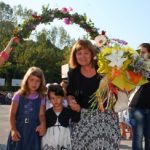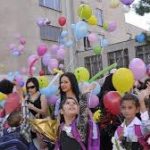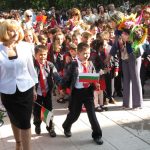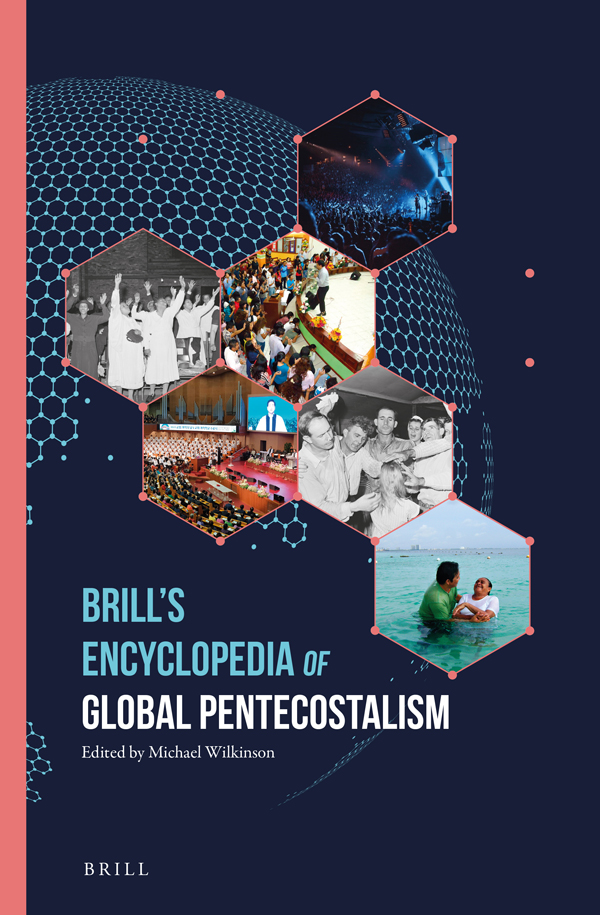First Day of School in Bulgaria
A Call to Righteousness over Bulgaria
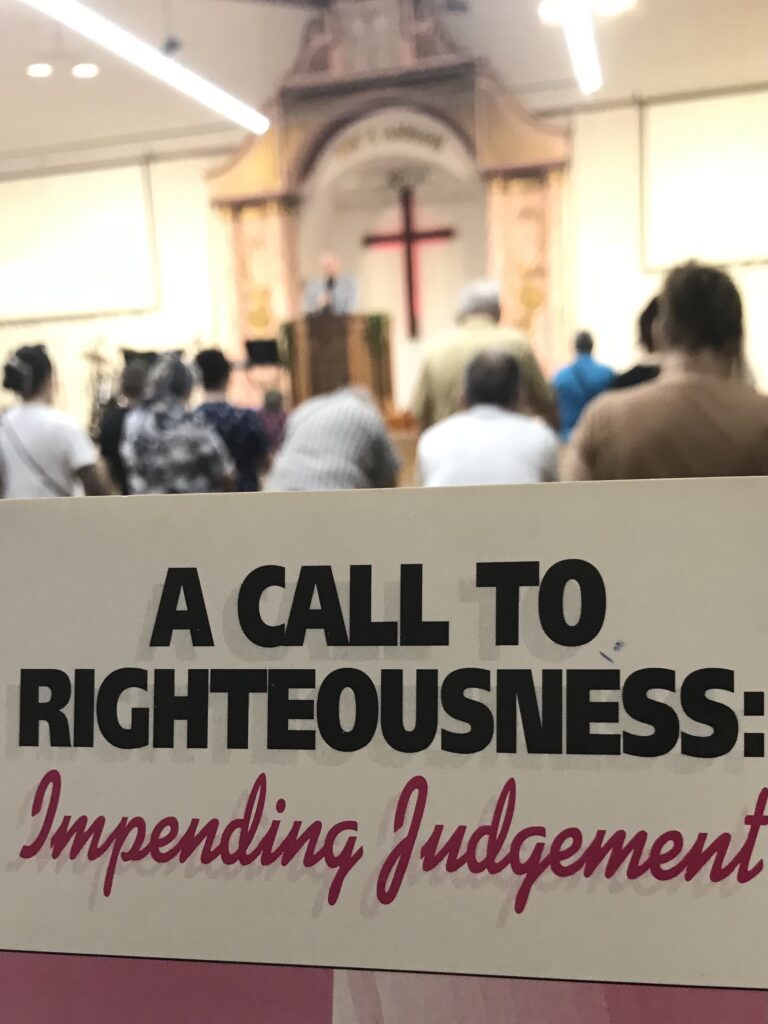
Wild Fire Inferno over Bulgaria
Bulgaria Sets October 20th for 7th Early Parliamentarian Elections in 3 Years
August 15, 2024 by Cup&Cross
Filed under Featured, News, Publication
President Rumen Radev has appointed Goritsa Grancharova-Kozhareva as the new acting Prime Minister and expects her to propose a caretaker government by August 19. During a meeting at the presidential residence on Dondukov 2, Radev outlined the timeline and expectations for the formation of the new government.
Radev indicated that while the Constitution does not specify a strict deadline, October 20 is considered the most suitable date for the upcoming early parliamentary elections. He instructed Grancharova-Kozhareva to present a proposed government structure and composition by August 19 to ensure compliance with legal requirements.
Government Elections in Bulgaria (2005-2024):
2005 Parliamentary Elections
2006 Presidential Elections
2007 Municipal Elections
2009 Parliamentary Elections
2009 European Parliament elections
2011 Presidential Elections
2011 Local Elections
2013 Early parliamentary elections
2014 Early Parliamentary Elections
2015 Municipal Elections
2016 Presidential election
2017 Parliamentary elections
2019 European Parliament election (23-26 May)
2019 Bulgarian local elections
2019 Municipal Elections
2021 April National Parliament election
2021 Second National Parliament election
2021 Third National Parliament and Presidential elections
2022 October elections for 48th National Assembly after the fall of a four-party coalition in June 2022.
2023 Bulgarian parliamentary election
2023 Second Bulgarian parliamentary election for the year
2024 Bulgarian parliamentary election
2024 Second Bulgarian parliamentary election for the year
Bulgaria prohibits propaganda for non-traditional sexual orientation in schools
After more than 4 hours of debate and violent scandals, Bulgaria’s Parliament on August 7 voted to adopt law changes which prohibit propaganda for non-traditional sexual orientation in schools. The proposal for changes to the Law for Pre-School and School Education was tabled by “Vazrazhdane” party. The changes prohibit “propaganda, promotion and encouragement, directly or indirectly, of ideas and views connected to non-traditional sexual orientation or to definition of gender identity different from the biological”. The changes to the law were supported at first and second reading by GERB-UDF, Vazrazhdane, Movement for Rights and Freedoms (MRF), There is Such a People, BSP for Bulgaria. Some 20 MPs from “We Continue the Change-Democratic Bulgaria” and 2 MPs from GERB-UDF voted against. Ten MPs from WCC-DB and three from GERB-UDF abstained. Here is part of the debate in the chamber: Kostadin Kostadinov – “Vazrazhdane”. We have a problem and it is a big problem. Now we are going to nip it in the bud so that no one, no way, can ever try to do what they do to children in other countries because it is not humane and it is anti-human to promote non-traditional sex education in schools. It is an anti-human ideology. And with this little text in the law we will bury and nip this ideology in the bud.
Yavor Bozhankov, WE Continue the Change – Democratic Bulgaria: “This bill you are proposing is nothing but pre-electoral populism, ugly homophobia and ugly division in society. Our Parliamentary Group will remain a defender of the parliamentary practice that bills should not be passed in this way. Do not fall victim to the pro-Russian “Vazrazhdane”.
Yordan Tsonev, MRF: “The MRF parliamentary group will support the proposed bill. This is an important part of children’s education and we cannot remain indifferent on this topic. The biggest reason to support it is that a large part of the Bulgarian people share this opinion about the education of our children. We share the motives of those who tabled the proposed change, which is also based on a text from the Constitution, which says that marriage is a voluntary union between a man and a woman. I want to address something else.
Traditional religions are conservative on this topic, because the foundations of the human species are based on the family, marriage between a man and a woman and the continuation of the human species are based on that. And to be clear, there is no place for this type of education in our schools and it has nothing to do with tolerance of the different. Children are something else. They should be left to develop according to God’s laws.”
Bulgaria: Another Expert Cabinet, Sets GERB Dominance

Boyko Borissov announced that GERB will begin negotiations for an expert cabinet and majority starting Monday. He insists that the government will only be formed with the first mandate, dominated by his party, and that the prime minister, foreign minister, and defense minister must be from GERB. Borissov himself will not run for prime minister to facilitate the negotiations. If these conditions are not met, Bulgaria will head to another election in September.
“There will be a government if the prime minister is from GERB. I will not run for prime minister to ease negotiations,” Borissov clarified. He announced a negotiating team comprising Temenuzka Petkova, Raya Nazaryan, and Denitsa Sacheva, with negotiations starting on Monday. Borissov believes the first mandate is the only chance to form a cabinet, warning that failure to do so will lead to September elections.
Borissov justified the need for GERB‘s dominance in the cabinet by stating that he cannot explain to his supporters why GERB, having won the elections again, should cede key ministerial positions. He confirmed that Mariya Gabriel will not be part of the cabinet and emphasized that GERB will not form a coalition with the Movement for Rights and Freedoms (DPS), despite past collaborations on various topics.
Borissov stressed the need for a government within the next seven days, warning of the exhaustion caused by repeated elections. He expressed respect for President Radev but highlighted the importance of avoiding institutional confrontations. Borissov also commented on the resignation of “Yes, Bulgaria” leader Hristo Ivanov, expressing regret and emphasizing the need for statesmanship over ego in these times.
2024 European Parliament election in Bulgaria
5 seats, 24.26% — The 2024 European Parliament election in Bulgaria will be held on June 9, 2024 as part of the 2024 European Parliament election. This will be the fifth parliamentary election since Bulgaria’s EU accession in 2007, and the first to take place after Brexit. Bulgaria will simultaneously hold a separate parliamentary election on the same day.
Since the pandemic in 2020, it has become customary that elections are held in Bulgaria twice a year regardless of the high cost for the country. It is expected that as in the previous 4-5 years, the second round of Parliamentarian elections will be held in October.

Government Elections in Bulgaria (2005-2022):
2005 Parliamentary Elections
2006 Presidential Elections
2007 Municipal Elections
2009 Parliamentary Elections
2009 European Parliament elections
2011 Presidential Elections
2011 Local Elections
2013 Early parliamentary elections
2014 Early Parliamentary Elections
2015 Municipal Elections
2016 Presidential election
2017 Parliamentary elections
2019 European Parliament election (23-26 May)
2019 Bulgarian local elections
2019 Municipal Elections
2021 April National Parliament election
2021 Second National Parliament election
2021 Third National Parliament and Presidential elections
2022 October elections for 48th National Assembly after the fall of a four-party coalition in June 2022.
2023 Bulgarian parliamentary election
For Christmas, Bulgaria dismantled a Soviet monument
SOFIA, Bulgaria — Bulgaria on Wednesday began dismantling a monument to the army of the Soviet Union that dominated the skyline of the capital, Sofia, for nearly 70 years and was widely seen as a symbol of Russia’s influence in the Balkan country.
The monument was erected in 1954 to commemorate the 10th anniversary of Soviet forces entering Bulgaria, which had been allied with Nazi Germany in World War II. Their arrival in 1944 marked the beginning of 45 years of hardline Communist rule.
Following the collapse of communism in 1989, the local council in Sofia voted to remove the monument, but successive governments shied away from taking the final step.
On Wednesday, following years of heated debate, workers began to dismantle the 45-meter-high (147-foot) installation, removing the figures at the top, which showed a Soviet soldier holding an automatic rifle, a woman with her child, and a worker.
Vyara Todeva, regional governor of Sofia, said that for 70 years the monument was never restored and serious cracks had appeared in the figures.
It will take at least a month to dismantle the whole monument, she said, and the figures will likely be taken to the Museum of Socialist Art in Sofia.
In recent years, the monument has become a focal point of the deep divisions between pro-Russian and pro-Western groups in Bulgaria’s society. It has often been covered with paint by unknown artists, lately with the blue and yellow colors of the Ukrainian flag.
A heavy police presence was dispatched to secure the area around the monument and to prevent possible clashes between those in favor and those opposed to its removal.
The Socialists and other pro-Moscow groups in Parliament who fiercely oppose the monument’s removal said they would seek to organize a referendum on its fate. They said “similar anti-fascist monuments are standing untouched in many European cities”.
They received strong backing from Moscow, where the spokeswoman for the Russian Foreign Ministry, Maria Zakharova, said the dismantling would worsen relations with Bulgaria.
Looking Over the Wall: A Psychological Exploration of Communist and Post Communist Bulgaria
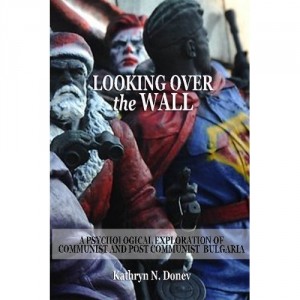 Looking Over the Wall: A Psychological Exploration of Communist and Post Communist Bulgaria
Looking Over the Wall: A Psychological Exploration of Communist and Post Communist Bulgaria
This book is the result of over a decade of research and personal experiences of living in Bulgaria for the past seven years. It embodies documents, articles, personal interviews and essays dealing with psychological explorations of communist and post communist Bulgaria. Along with a historical overview of Bulgaria, the author presents the development of psychotherapy throughout the country and addresses future concerns for the state of counseling within a post communist context. Furthermore, the author examines the Pentecostal experience of the Bulgarian evangelical believer drawing on a paper presented at the 36th annual Society of Pentecostal Studies Conference. As well included is original research which develops a theoretical account of the sequences of internal motivation in addition to student survey results regarding counseling practices from the first Master’s in Chaplaincy Ministry Program in Europe at the Bulgarian Evangelical Theological Institute.
Preview and Purchase Your Copy at Amazon.com
BULGARIA in Brill’s Encyclopedia of Global Pentecostalism
Brill’s Encyclopedia of Global Pentecostalism (BEGP) provides a comprehensive overview of worldwide Pentecostalism from a range of disciplinary perspectives. It offers analysis at the level of specific countries and regions, historical figures, movements and organizations, and particular topics and themes. The online version of the Encyclopedia is already available
For some of you it has been a long time ago that you submitted your article(s) for BEGP, for others it was a bit more recent, but I am very happy to announce that this Summer the print edition of Brill’s Encyclopedia of Global Pentecostalism will finally see the light. With this we can proudly close this chapter and proceed to see what the reception of the volume will bring! Thank you for being part of this great project!
To celebrate, we will organize an online symposium on September 16th, with presentations from the editors as well as 3 experts who will comment on BEGP: Amos Yong, Birgit Meyer and Néstor Medina. You can find more detailed information in the attached flyer. Please be welcome.
Registration is free (but necessary to receive a link); we will raffle one free copy of the print edition among the registered participants. For registration and questions, please send your message to [email protected], mentioning Symposium in the subject line.
We hope to see you then!
Bulgaria builds permanent NATO base near Yambol
September 30, 2023 by Cup&Cross
Filed under Featured, Missions, News, Publication
By 2025 the Ministry of Defense will build an entire small town, in which the soldiers of the NATO allies from the multinational battle group on the territory of Bulgaria will live.
The estimated cost is at least 50 million euros but the final sum will become clear after the design is completed, Minister of Defense Todor Tagarev has told the MPs from the Defense Committee in Parliament. Military personnel of about 1,500 will reside in the town permanently, but it should be able to shelter up to 5,000 people.
It has not yet been decided where the base would be located, but the military has hinted that the region of Yambol is the most suitable area with the nearby air base of Bezmer. According to the minister, the construction of the military town will be economically beneficial for Yambol and the region.


